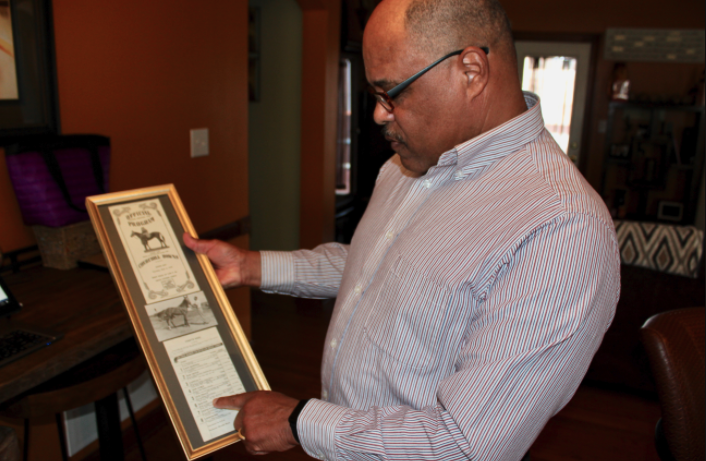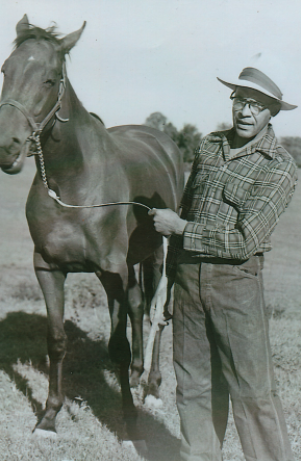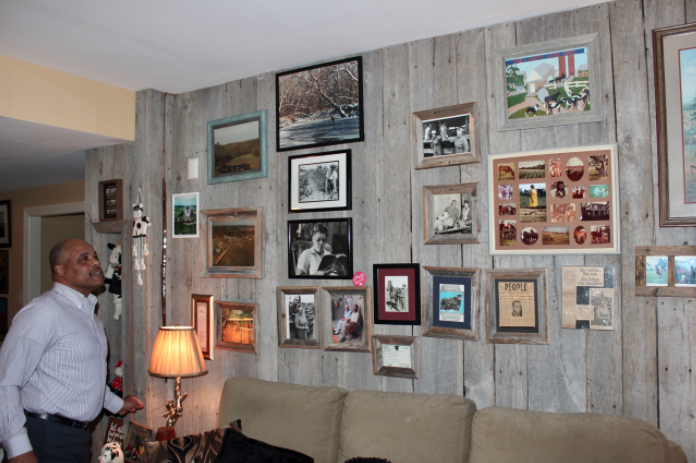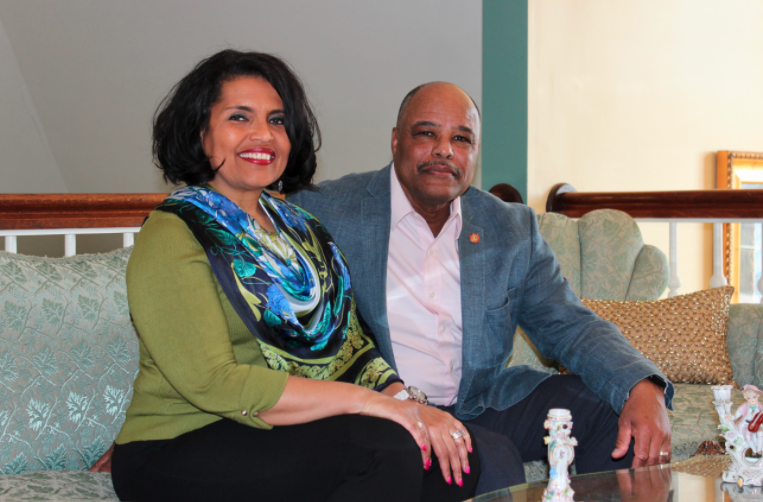The Sweeney Family Exemplifies Commitment to Community
Photography Provided
Maurice Sweeney is the youngest child of the late Dr. Pruitt Owsley Sweeney, who was a renaissance man born in the late 1800s in Liberty, Kentucky. Respected in the community, the doctor and his wife Susa raised their four children on their 312-acre dairy farm outside of Middletown, purchased in 1947. Dr. Sweeney purchased the land after selling property he owned across from Louisville Gardens at 5th Street and Muhammad Ali Boulevard. That property was sold to businessman James Graham Brown. Dr. Sweeney used the proceeds to purchase the property he named Happy Hour Farm.

Before there was a Locust Creek, the subdivision in east Jefferson County, there was Happy Hour Farm. Until December of 1999, Maurice maintained 100 head of beef cattle. That same farmland now has more than 400 homes.
Maurice believes nothing builds character like taking care of cattle and milking twice a day every day, as his mother and three siblings did after Dr. Sweeney died in 1960. While Maurice’s brother Deryl was a captain in the Marine Corps and his sister Phyllis was the first black teacher at Anchorage Public School, Maurice followed in his father’s footsteps, with involvement in more than 30 boards and commissions.
“A lot of people go full-circle following in their parents’ footsteps,” Maurice says. “Their dad is a lawyer, they become a lawyer – dad’s a doctor, they become a doctor. My dad was president of the NAACP in Louisville from 1936 to 1938 and I was president from 1983 to 1984. I thought that was kind of cool.”
While Dr. Sweeney fought for equal use of public golf courses and the ability to attend the Iroquois Amphitheater in 1947, many years later Maurice led the participation of minority venders during the PGA Ryder Cup, and his brother’s trucking company helped in the reconstruction and modification of the Iroquois Amphitheater.
Although it took years, Dr. Sweeney was successful in his efforts, which allowed blacks to play golf at public golf courses and led to equal pay for black teachers. As a child Maurice had no idea that his father contributed so much to the black community in Louisville.
One early example of Maurice’s leadership ability was at Eastern High School. Maurice helped start and organize the Students to Promote Better Relations club and became the school’s first black student council president. Through the decades, Maurice has worked for the Kentucky Commission on Human Rights, National City Bank, and the Kentucky Transportation Cabinet, where he spearheaded the governor’s management trainee program and ran his brother’s businesses when he died in 1999.

Maurice is greatly inspired by his parents, who worked diligently to bring unity and equality to his family and society at large. His mother, who was raised on her family farm in western Kentucky, obtained her home economics degree from Kentucky State University and was a home economics teacher. In addition, Mrs. Sweeney maintained the farm after Dr. Sweeney’s death, and it was her perseverance and exemplary management skills that contributed to the farm’s success as a diary and beef cattle operation.
“I had a lady, who at the time was 101 years old, eagerly tell me stories about selling turkeys to my father,” Maurice recalls. “One time I was at the barbershop and a man told me my dad was like Michael Jordan. The guy had missed my father visiting his school for a speech, and everyone told him he’d really missed out on something special.”
Maurice learned more about his father’s humanitarian efforts when sorting through old articles and letters after the death of his father. One of Maurice’s biggest surprises when going through his father’s scrapbook was finding a program from Churchill Downs dated May 6, 1952. It listed the seventh horse in the fourth race as Deryl’s Girl, owned by P.O. Sweeney, in his fraternity colors – black and gold.
The farm was a show place at the time, featuring the first modern milking parlor in Jefferson County. School classes would often come from the city for field trips and venture to the farm to witness how milk was processed.

Maurice recalls a specific adventure on the farm.
“While helping a friend move to Jeffersontown in 1999, there was a drought that year and it was difficult to keep hungry cows fenced in,” he says. “My mom called me to say, ‘Maurice, you need to come home now. You have 100 head of cattle out on Shelbyville Road.’ Our neighbors had gathered the cattle until I got there, but were unable to get them back to the field. Like the pied piper, once I got there, all 100 peacefully followed me back to greener pastures.”
Although many homes have been built around the pasture where cattle used to graze and where he hosted his famous annual goat roast, Maurice still reminisces about the farm days by spending time in the basement, where he repurposed wood from the original house.
With the wisdom and strength of his lineage flowing through his veins, Maurice proudly pays respect to his family and their heritage on a daily basis. Over time Maurice has collected letters, articles, news clippings and photographs that document his family impact on society. He’s currently retired but still volunteers as a member of the Eastwood Village Council.







Comments 1
I would like to know more about my family❤️